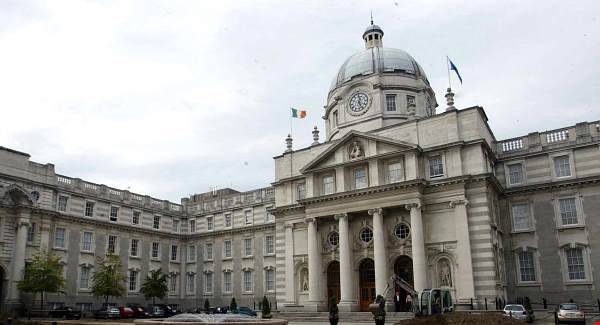Minister for Education and Skills Richard Bruton and Minister for Higher Education Mary Mitchell O’Connor released both the review for the Allocation Model for Funding Higher Education Institutions and the Higher Education System Performance Framework for 2018-2020 yesterday, January 16.
The framework states the government’s ambition to become the best higher education system in Europe and position Ireland as Global Innovation Leader by 2026. Dr Graham Love, CEO of the Higher Education Authority (HEA) welcomed the report, commenting that “the way our students learn and what Ireland needs from its Higher Education Institutions is changing fundamentally. Therefore, our funding model needs to change too”.
The funding model stated that higher levels of funding would be granted to courses more expensive to run, Science Technology Engineering and Mathematics (STEM) courses in particular. The base fee for students of €3,000 per annum will be maintained, however the majority of this capital will go to courses related to Science, Technology, Engineering and Maths. Bruton commented that “this is all about incentivising colleges to give more of what’s important”. The National Competitiveness Council Report 2017 reported that Ireland has the highest level of maths, science and computing graduates aged 20-29 per 1,000 of the population in the EU.
Funding will also be allocated based on the performance of departments. Distribution of additional funding based on research achievements will be doubled. On the other hand, financial penalties will be introduced when governance policy is broken.
Special focus was directed at issues of equal opportunity in higher education. Between the academic terms of 2012/13 and 2014/15 the number and share of students from disadvantaged backgrounds rose from 22% to 26%. Enrolment of students with a disability rose from 7% to 11%. The National Plan for the Equity of Access to Higher Education aims to ensure that the higher education system reflects Ireland’s diverse population. It plans in particular to greatly increase the enrolment of students with sensory disabilities, mature students, and members of the Travelling Community. A spokeswoman from the Department of Education also stated that the government will be investing €100 million more in 2018 than 2016.
The framework outlined the plan for the emergence of technological universities in the coming years. This is a part of the plan to increase the amount of apprenticeship and trainee programmes available in Ireland. Work based learning will be prioritised and the framework promise that by 2025 all university students will have the opportunity to undergo work placement or a work-based project as a part of their course. An increased number of part-time or flexible courses is due to be provided. Bruton and Mitchell O’Connor also plan to increase the proportion of students studying a foreign language.
Following the launch of the reports, the Irish Universities Association (IUA) stressed the need for the government to mend the structural funding deficit in higher education. The association’s director general Jim Miley said: “This reform agenda will continue but it must be accompanied by meaningful investment measures if we are to deliver on the Minister’s goal of having the best education system in Europe by 2026.”
Love pointed out that this framework is the first major review of funding allocation in higher education in over a decade. It’s implementation, he continues “will bring optimal return for Ireland”.
According to the Irish Examiner, speaking of the increase in funding toward universities and colleges who offer more STEM courses, Bruton stated: “This will ensure the skill gaps we need to address will be a high priority…We will be promoting innovation [and] research.” Bruton also commented on the rise in funding to support those from disadvantaged backgrounds to attend third level education. “We will be making sure additional money goes to colleges that are supporting people with a disadvantage.”
The introduction of penalties due to financial irregularities follows years of investigations at the University of Limerick (UL). In April 2017, the university made a settlement of €186,000 with the Revenue Commissioners following concerns about how the university paid staff on sabbatical leave. This revelation formed part of a wider controversy surrounding UL over irregular financial practises and consequent industrial relations problems. Concerns were first raised by three whistleblowers within the university in 2012.







